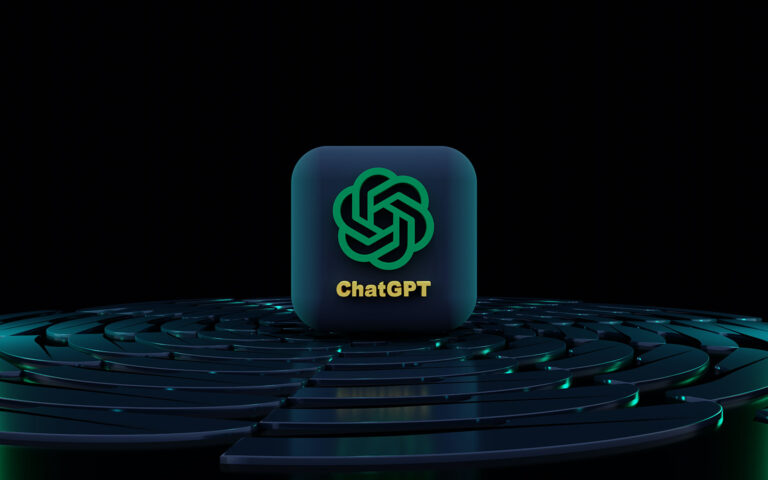2009 Honoree International DI Society
W. Harold Petersen Lifetime Achievement Award
2015 Honoree of NAILBA’s
Douglas Mooers Award for Excellence
With the help of Victor Cohen, this is part of our ongoing series with Eugene Cohen, founder of the Eugene Cohen Insurance Agency, Inc., 2009 Honoree of the International DI Society’s W. Harold Petersen Lifetime Achievement Award and 2015 Honoree of NAILBA’s Douglas Mooers Award for Excellence.
From time to time we will feature an interview with Eugene, who has dedicated almost 60 years of his life to learning, teaching, and supporting brokers in the agency’s quest to help consumers protect their income from the tragic effects of a disability.
Disability insurance (DI) is one of those products that can change the trajectory of an individual and a family’s life and is crucial for every financial planner and insurance professional to learn about and offer to clients.
Victor: Eugene, I know that producers often ask you for suggestions on how they can increase their disability insurance (DI) business through prospecting. So, that’s what we’re going to focus on in our discussion today.
Eugene: One of my favorite topics.
Victor: Let’s first start with the producer who has been in the industry a long time but hasn’t really focused on DI. What do you recommend?
Eugene: I say, look at your book of business. You have so many clients who don’t know they should insure their income which, in most cases, is their greatest asset. It’s not unusual to find that no one has talked to them. Income planning, whether post-retirement planning or while working, will peak a client’s interest.
Victor: Are there certain types of clients that the long-time producer should perhaps first reach out to in their book of business?
Eugene: Higher income earning professionals often make great DI clients because they have so much to protect. Physicians, attorneys, small business owners, real estate professionals, CPAs, engineers, consultants, the list is endless.
Victor: What about clients with more blue-collar jobs, like plumbers, electricians, mechanics?
Eugene: They can also be excellent DI clients—especially if they own their own business. Business owners in general make great DI clients because they understand how hard it was to build the business and how easily it can come undone due to an extended disability
In addition, if the advisor has funded a buy-sell agreement with life insurance, there is often the need for the client to have a disability buyout policy. There’s also a DI policy to cover business expenses.
Victor: Let’s now look at the new producer. When you started your career, you focused on DI. I’m curious, what made you want to specialize in disability insurance when others in the business chose other areas of focus?
Eugene: I chose to focus on individual disability income protection rather than other products because everyone has an income they need to protect. Once you meet someone who became disabled and needs to use a policy, then it sticks in one’s head. Then the more we talked about it, the more we realized that very few individuals are ever approached about DI. It’s really surprising!
You know what’s amazing? I don’t think the need for our product has changed since I started offering it decades ago. Our job is still to make sure that the client is aware of all these wonderful disability insurance products that have been designed to protect the individual and their family from financial ruin.
Victor: What do you suggest new producers do first? They don’t, of course, have the luxury of looking for DI clients through their book of business—because they don’t have a book of business.
Eugene: I suggest new producers and any producer new to DI—first learn the DI products. There are agencies like ours and others that offer training.
Then choose an occupation to target. For example, any of the occupations I already mentioned are fantastic. But you could also focus on car dealership managers, even florist shop owners, or restaurant owners. There are so many individuals who need DI.
Victor: Where do new producers find clients to meet with?
Eugene: When I started in this business I had no choice but to use the phone—make cold calls. My manager told me to first talk to my friends and family about DI. But they were not very good prospects. So, I had to use the phone.
Fortunately, I learned from an early age in this business that talking to people is the secret. If a producer calls and talks to enough people they will pick up appointments. Things will happen.
Victor: Do you remember what you would say on the phone when making cold calls?
Eugene: It’s burned into my brain like it was just yesterday. I’d get the business owner on the phone and say, “Hi, my name is Eugene Cohen and I specialize in offering disability income protection, which is a policy designed to provide an income if you were to ever get sick or hurt and your earning stopped. Let me ask you a question, do you have something like that?” They’re going to answer either yes or no.
If they answer no, I merely would say, “I would like to stop by and introduce you to this concept of insuring your income from sickness or accident. Is Wednesday at 3:00pm or Thursday at 4:00pm good for you?”
I may have to talk to five or six or seven people before someone says, “Fine, come on out.” The more people I would talk to, the more appointments I would pick up.
Victor: What if the person on the phone says they think they have something like you are describing?
Eugene: Then I would say, “Is it group disability insurance or individual?” If they answered, “Group,” I would congratulate them on having disability income protection and I would ask if I could review their group policy because they may need additional coverage.
Victor: What if they say they have individual disability insurance?
Eugene: Then I would ask them when they last had it reviewed. Because, over time, as a DI policyholder’s income increases, often the client doesn’t increase their monthly benefit—eventually making them under insured.
Victor: What if they say they have a DI policy that was recently reviewed?
Eugene: Then I would thank them for their time and call the next person on my list.
Victor: And where did you get the numbers to call?
Eugene: When I first started I would go to the Cleveland Public Library and go through business directories with business phone numbers, focusing on professional people and business owners. I’d write down the names and numbers of individuals to call in surrounding small towns I was planning to soon visit.
But producers have it so much easier now. All you have to do is Google an occupation you want to focus on calling, type in the city where you’ll be working, and there’s your list of numbers to call.
Victor: Why do you think some producers have a hard time making cold calls?
Eugene: Two reasons. They don’t like rejection and they think it’s too hard. I feel rejection is just part of it. You’re not going to have everyone say yes. But you are definitely not going to have anyone say yes if you don’t call.
If every producer says they don’t make cold calls, that’s great…for the producer who is making them.
Victor: What do you think about sending out email blasts as a way of connecting with prospective clients?
Eugene: I never read emails from people I don’t know. Do you? You have to talk to people. There is no way around it. You have to help them see the need. Need motivates action. And how do you help individuals see the need? You ask questions.
Victor: What are some of the questions you suggest asking?
Eugene: I would ask, “How important is your income to you?” While the answer may seem obvious, the question often helps the client see how much of their life depends upon income. It’s hard to do anything without income.
You can also ask, “What’s the longest vacation you’ve ever taken?” The client will often answer, “One, two or three weeks.” Then, ask them, “Why not longer?” Naturally, they will almost always answer, “I have to work.” Then you can say, “Well, what would you do if you had a disability and you couldn’t work for five years, ten years, maybe until age 65? What would you do? There are policies that will pay a portion of your income for a period of time.”
Another question to ask: “How long has it taken for you to accumulate the assets you have?” They may say, “Ten or fifteen years.” Then ask, “If you were disabled and your income stopped, how long would it take for your assets to disappear?” A disability income protection policy can help protect a portion of your assets if you’re ever disabled due to an illness or accident.
Victor: Unfortunately, we are going to have to wrap things up here. Any final thoughts before we talk again?
Eugene: Referrals can also be very helpful, of course. And a great way for any producer to learn about DI is to ensure that their own income is protected with a DI policy.
Victor: Eugene, as always, thank you for this opportunity to once again talk DI with you. You have so many invaluable insights from all your years of success in the business, I could literally go on talking with you forever. Thank you, again.
Eugene: Thank you, Victor. Always great talking with you.


































An Interview With Eugene Cohen—Disability Insurance And The Small Business Owner…Do You Have Them Fully Covered?
2009 Honoree International DI Society W. Harold Petersen Lifetime Achievement Award
2015 Honoree of NAILBA’s Douglas Mooers Award for Excellence
With the help of Victor Cohen, this is part of our ongoing series with Eugene Cohen, founder of the Eugene Cohen Insurance Agency, Inc., 2009 Honoree International DI Society W. Harold Petersen Lifetime Achievement Award, 2015 Honoree of NAILBA’s Douglas Mooers Award for Excellence.
From time to time we will feature an interview with Eugene, who has dedicated 60 years of his life to learning, teaching, and supporting brokers in the agency’s quest to help consumers protect their income from the tragic effects of a disability.
Disability insurance (DI) is one of those products that can change the trajectory of an individual and a family’s life and is crucial for every financial planner and insurance professional to learn about and offer to clients.
Victor: We’re going to focus today’s conversation on what I know is one of your very favorite disability insurance topics—the small business owner.
Eugene: There are so many fantastic disability insurance products designed just for the small business owner. It’s exciting.
Victor: When you say, “small business,” how are you defining a small business?
Eugene: We’re talking about a business with usually anywhere from eight to twelve full-time employees. But it could have less. Here are some examples of the kind of small businesses we mean—a small clothing boutique, a small accounting firm, a small dental practice, law practice, architecture firm, an engineering firm, a small restaurant. The list of businesses is endless.
Victor: What makes the small business owner’s DI needs so different than let’s say a non-business owner’s DI needs?
Eugene: Great question. Let’s take a closer look at the small business owner. They have worked hard to build a business. They invested dollars and/or may have taken out a loan. The owner has often put in endless hours—night and day to develop and build their successful business.
That business may be the most valuable asset the owner has. It could be more valuable than their home and automobile. That business needs to be protected.
I want you to close your eyes and imagine what would happen to that business owner—the power that makes the business run—if they became disabled due to becoming hurt or sick? What would happen if they were out of work for six months, a year, maybe two years?
Victor: The business would likely be in trouble.
Eugene: That business could suffer terribly. It could even go away. But…it doesn’t always have to be that way—not if a business owner has perhaps a business overhead expense policy.
Victor: This is in addition to having an individual disability insurance policy, right?
Eugene: Absolutely. An individual DI income protection policy will take care of some of the business owner’s personal bills, what I call “Life’s noncancelable financial obligations.” We all have those expenses, regardless if one is a business owner or non-business owner.
We’re talking expenses, such as monthly rent, or a mortgage payment, utilities, groceries, loan payments, car payments, insurance premiums…those life expenses that keep coming. Every month.
Let’s say your client has an individual disability insurance policy with a monthly benefit of $10,000. With the premium being paid with after-tax dollars, the benefit will be most likely tax free.
I think of an individual disability insurance policy as a client’s silent business partner. It’s working when the owner can’t work because of their disability.
It’s very important to have those life expenses covered with an individual DI policy. But remember, your client is a small business owner. So what other expenses do they have?
Victor: Business expenses that they can be responsible for?
Eugene: Right—what I call, “business noncancelable financial obligations.” The monthly office rent, utilities, employee salaries, property and payroll taxes, perhaps rental equipment, and other qualified expenses.
A business overhead expense policy may even perhaps allow the salary of an employee hired to take on the owner’s duties while the owner is disabled, as a possible eligible expense. Of course, this would depend on the policy provisions.
The business overhead expense policy provides reimbursement of qualified monthly eligible fixed business expenses, like the ones I just mentioned and other expenses.
Visualize this. You have a client who owns a boutique clothing store with six employees and a store manager. The owner is the buyer, the owner is the store’s top salesperson, the owner trains and supervises their employees and the owner has other important responsibilities.
If the owner became sick or hurt, revenue could slow up substantially. It’s possible that the business could have a hard time surviving without the owner.
Soon, those bills would start rolling in. The business overhead expense policy will cover qualified business expenses for a short time—typically paying benefits for twelve months, eighteen months, or twenty-four months—depending on the benefit options offered by the carrier and of course chosen by the policyholder.
When I started my agency, I had to sign an office lease to guarantee the rent. I realized how important it was to have a business overhead expense policy. I already owned a disability income protection policy, but wanted a policy to assist with the office expenses I was assuming.
Victor: Another specialized DI product for business owners is a disability key person policy. Why do you think that is often important for a business owner to have?
Eugene: Many times a business owner will have an extremely important person working at their business—a key person critical to the success of the business. Often, this person has been with the business for a long period of time. If that key person were suddenly not working due to a disability, that could hurt the business tremendously.
Take a small computer company for example with a top salesperson with the connections and relationships that account for a large percentage of the company’s sales. If that key person were seriously disabled due to a sickness or accident, it could create a financial crisis for the business. To help protect a business owner from this type of situation, many business owners purchase a key person DI policy on their key employee.
The business owns the policy, with the business owner paying the premium.
If the key employee were to get sick or hurt with a qualified disability…after the policy’s elimination period, typically, the benefit would be paid to the employer and could be used for various purposes such as to hire and train a new employee to replace the disabled key person.
Victor: Eugene, I can’t believe how fast this conversation has flown by. Unfortunately, we have to wrap things up. Can’t thank you enough for sharing your invaluable insights.
Eugene: Thank you, Victor. Always a pleasure.
Victor: Are there any final thoughts you would like to add before we meet next time?
Eugene: In situations where you have two or more owners of a business, I highly recommend looking into disability buyout insurance policies for the owners. Just like a life buy-sell agreement may be funded by a life insurance policy, there is a disability buyout insurance product. When a business partner has a significant total disability which triggers the buy-sell agreement, the disability buyout policy could provide funds to assist in the buyout.
We encourage producers to talk to their disability specialists and learn about these products because they are often extremely important for small business owners to own.